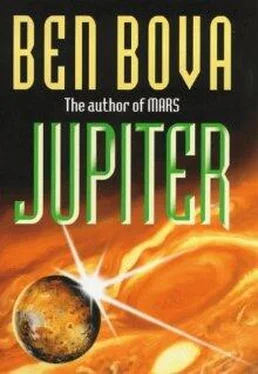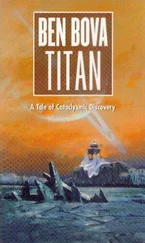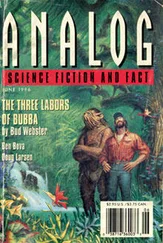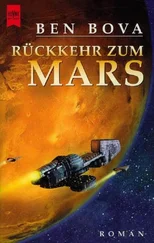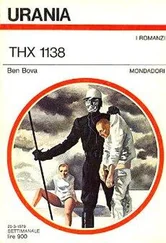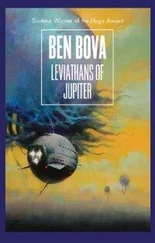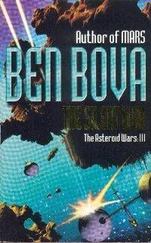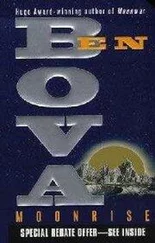PROLOGUE:
ORBITAL STATION GOLD
It took six of them to drown him.
Reluctantly, grudgingly, Grant Archer had stripped himself naked, as they had ordered him to do. But once they pushed him to the edge of the big tank, he knew he would not go into it without a fight.
The augmented gorilla grabbed Grant’s right arm; she was careful not to snap his bones, but her powerful grip was painful all the same. Two of the human guards held his left arm while a third wrapped him around the middle and still another lifted his bare feet off the deck so he couldn’t get any leverage for his wild-eyed struggles.
All this in nearly total silence. Grant didn’t scream or roar at them, he didn’t plead or curse. The only sounds were the scuffing of the guards’ boots on the cold metal deck plates, the hard gasps of their labored breathing, and Grant’s own panicked, desperate panting.
The guard captain grimly, efficiently grasped Grant’s depilated head in both big meaty hands and pushed his face into the tank of thick, oily liquid.
Grant squeezed his eyes shut and held his breath until his chest felt as if it would burst. He was burning inside, suffocating, drowning. The pain was unbearable. He couldn’t breathe. He dared not breathe. No matter what they had told him, he knew down at the deepest level of his being that this was going to kill him.
No air! Can’t breathe!
Reflex overpowered his mind. Despite himself, despite his terror, he sucked in a breath. And gagged. He tried to scream, to cry out, to beg for help or mercy. His lungs filled with the icy liquid. His whole body spasmed, shuddered with the last hope of life as they pushed his naked body all the way into the tank with a final pitiless shove and he sank down, deeper and deeper.
He opened his eyes. There were lights down there. He was breathing! Coughing, choking, his body racked with uncontrollable spasms. But he was breathing. The liquid filled his lungs and he could breathe it. Just like regular air, they had told him. A lie, a vicious lie. It was cold and thick, utterly foreign, alien, slimy and horrible.
But he could breathe.
He sank toward the lights. Blinking, squinting in their glare, he saw that there were other naked hairless bodies down there waiting for him.
“Welcome to the team,” a sarcastic voice boomed in his ears, deep, slow, reverberating.
Another voice, not as loud but even more basso profundo, said, “Okay, let’s get him prepped for the surgery.”
My God, my God, why hast Thou forsaken me?
Far from my deliverance are the words of my groaning.
—Psalm 22
GRANT ARMSTRONG ARCHER III
Despite being born into one of the oldest families in Oregon, Grant Archer grew up in an environment that was far from affluent. His earliest memories were of watching his mother rummaging through piles of hand-me-down clothes at the Goodwill shop, looking for sweaters and gym shoes that weren’t too shabby to wear to school.
His father was a Methodist minister in the little suburb of Salem where Grant grew up, respected as a man of the cloth but not taken too seriously in the community because he was, in the words of one of the golf club widows, “churchmouse poor.”
Poor as far as money was concerned, but Grant’s mother always told him that he was rich in the gift of intelligence. It was his mother, who worked in one of the multifarious offices of the New Morality in the state capital, who encouraged Grant’s interest in science.
Most of the New Morality officials were suspicious of science and scientists, deeply worried about these “humanists” who so often contradicted the clear word of Scripture. Even Grant’s father urged his son to steer clear of biology and any other scientific specialty that would bring the frowning scrutiny of New Morality investigators upon them.
For Grant there was no problem. Since he’d been old enough to look into the night sky with awe and wonder he’d wanted to be an astronomer. In high school, where he was by far the brightest student in his class, he narrowed his interest to the astrophysics of black holes. Although Grant thrilled to the discoveries on Mars and out among the distant moons of Jupiter, it was the death throes of giant stars that truly fascinated him. If he could learn how collapsed stars warped spacetime, he might one day discover a way for humans to use such warps for interstellar journeys.
He longed to work at the Farside Observatory on the Moon, studying collapsed stars far out in the cold and dark of deep interstellar space. Yet Grant had been warned that even at Farside there were tensions and outright dangers. Despite all the strictures of the New Morality and the stern rules laid down by the observatory’s directors, some astronomers still tried to sneak time on the big telescopes to search for signs of extraterrestrial intelligence. When such prohibited activities were discovered, those responsible were inevitably sent back to Earth in disgrace, their careers blighted.
That did not bother Grant, however. He intended to keep his nose clean, to avoid antagonizing the everpresent agents of the New Morality, and to study the enigmatic and entirely safe black holes. He was careful never to use the dreaded word “evolution” when speaking about the life cycles of stars and their final collapse into black holes. “Evolution” was a dangerous word among the New Morality eavesdroppers.
By the time he was finishing high school, he had grown into a quiet, square-shouldered young man with a thick thatch of sandy-blond hair that often tumbled over his light-brown eyes. He was good-natured and polite; the high school girls considered him a “delta” in their merciless rating system: okay as a friend, especially when it came to help with schoolwork, but too dull to date except in an emergency. A shade under six feet tall and whipcord lean, Grant played on the school’s baseball and track teams, no outstanding star but the kind of reliable performer who made his coaches sleep better at night.
As his senior year approached, Grant was offered a full scholarship in return for a four-year commitment to Public Service. The service was inescapable: Every high school graduate was required to do at least two years and then another two at age fifty. The New Morality advisor in his high school told Grant that by accepting a four-year term now, he could get a full scholarship to the university of his choice, with the understanding that his Public Service would be in the field for which he was trained: astrophysics.
Grant accepted the scholarship and the commitment, his eyes still on Farside. He went to Harvard and, much to his delighted surprise, fell in love with a raven-haired biochemist named Marjorie Gold. She made him feel important, for the first time in his life. When he was with her, the quiet, steady, sandy-haired young astronomy student felt he could conquer the universe.
They married during their senior year even though he knew he’d be off to the Farside Observatory for four years while Marjorie would be doing her Public Service with the International Peacekeeping Force, tracking down clandestine biological warfare factories in the jungles of southeast Asia and Latin America.
But they were young and their love could not wait. So they married, despite their parents’ misgivings.
“I’ll come down from Farside at least every few months,” Grant told her as they lay together in bed, contemplating the next four years.
“I’ll get leave when you’re here,” Marjorie agreed.
“By the time I’m finished my four years I’ll have my doctorate,” he said.
“Then you can get on a tenure track at any university you like.”
Читать дальше
